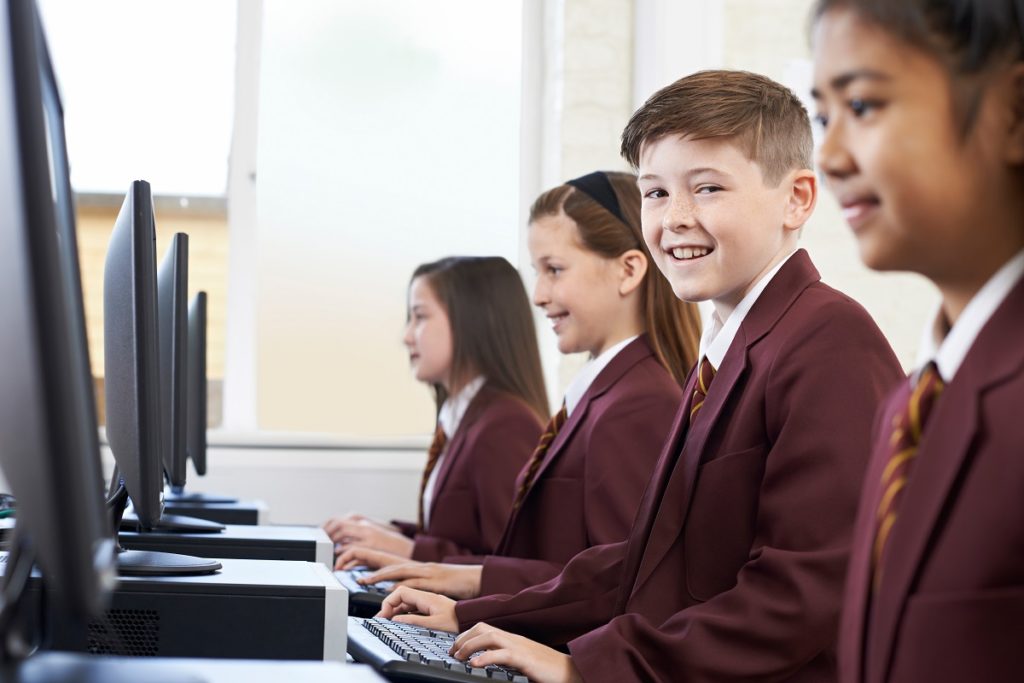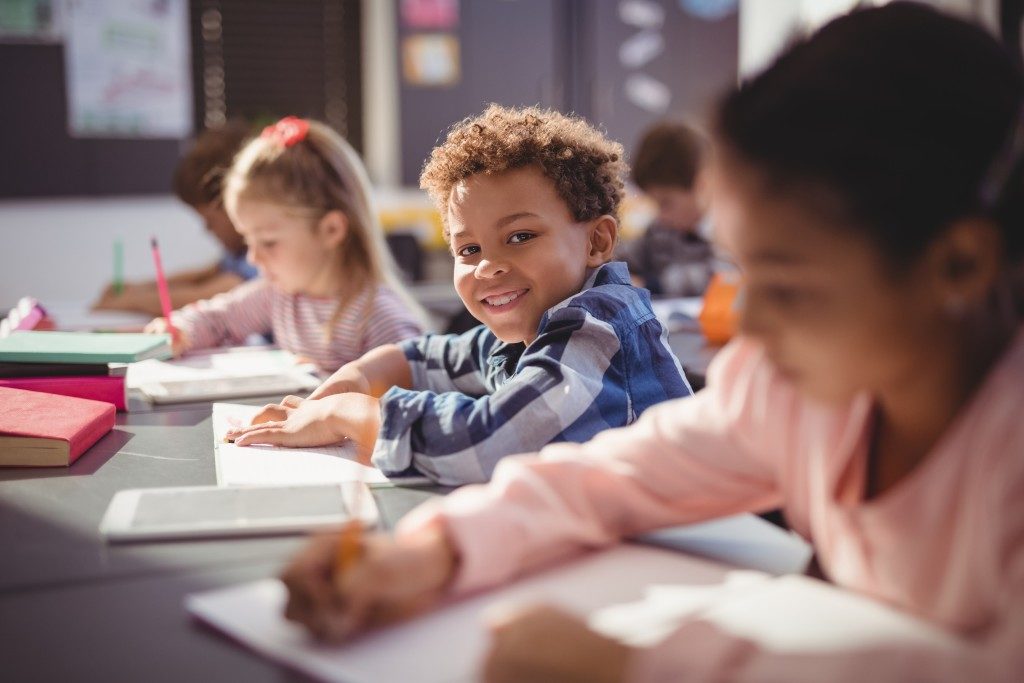Congratulations! You survived your child’s kindergarten years, and now it’s time to submit her application for elementary school.
First grade is a big leap from kindergarten. It involves increased responsibilities, longer hours, and more complex learning. Here’s how you can help your child get ready for this new stage of her education:
Instill the value of numbers
First graders are just beginning to learn how to count, recognize shapes, and tell time. Help your child get ready for basic math by practice counting forward to and backward from 100. Count real objects like toys and books to help her see the value of math in everyday life. You can also play with LEGO blocks and flashcards to introduce simple geometry.
Master reading and writing skills
In first grade, kids are given more opportunities to explore the wide world of language. It’s where they start building crucial skills in reading, spelling, and writing
You can make reading easier and fun for your kid by organizing spelling bees at home or working on simple crossword puzzles together. Reading stories aloud can improve her listening skills. Reciting rhymes and poetry will also help your child with sounds and pronunciation.
Studies show that rapid cognitive growth happens during the early elementary stages. This makes first grade a critical time for children to develop their language skills and widen their vocabulary. This can also be a prime time to teach her a second, or even third, language. Having a firm grasp on words and language can help your child articulate her emotions, socialize with people, and improve her reading comprehension.
Improve attention span
 In first grade, classes are more structured, and schoolwork can get more intensive. This means your child will be required to sit in class for more extended periods and accomplish more challenging activities. Research shows that attention in first grade can significantly affect a child’s future academic performance. Students who suffer from attention problems in first grade are at higher risk of missing essential skills that can cause potential educational issues in the future. As such, it’s crucial to sharper their focus and alertness during this period.
In first grade, classes are more structured, and schoolwork can get more intensive. This means your child will be required to sit in class for more extended periods and accomplish more challenging activities. Research shows that attention in first grade can significantly affect a child’s future academic performance. Students who suffer from attention problems in first grade are at higher risk of missing essential skills that can cause potential educational issues in the future. As such, it’s crucial to sharper their focus and alertness during this period.
Train her to tune out distractions by letting her work on a task such as an artwork or a writing exercise. Set a timer for how long she needs to work before taking a quick break. You can gradually increase the amount of working time as her focus improves. This exercise can also teach her self-discipline and time management.
Introduce basic life skills
Unlike kindergartners who are constantly spoon-fed and monitored, first graders are expected to be more independent and capable of reasoning. It’s time to flip the script and teach your kid practical skills she can use at any point in time. It can be as simple as teaching her to write her full name, birthday, address, and phone number. Or you can give her a certain amount of pocket money every week to teach her the value of saving and budgeting. Other practical skills include tying shoes, buttoning clothes, and even basic self-defense. Practicing these life skills at home can help your child feel more capable in the outside world.
First grade is all about enhancing the skills your child might have picked up in kindergarten. This period is always an adjustment for both parents and students. Your support and guidance during this transition will surely help your child excel and be a better learner.

